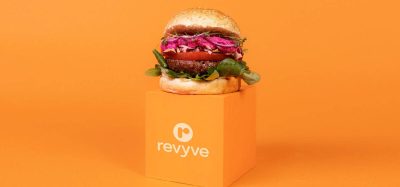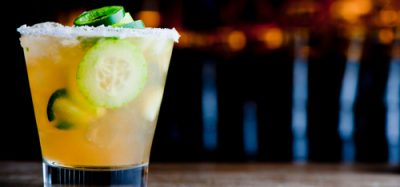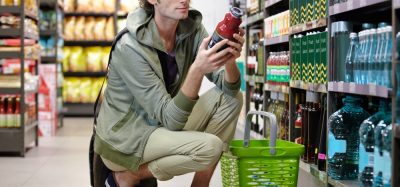Animal wellbeing centre of antimicrobial resistance study
- Like
- Digg
- Del
- Tumblr
- VKontakte
- Buffer
- Love This
- Odnoklassniki
- Meneame
- Blogger
- Amazon
- Yahoo Mail
- Gmail
- AOL
- Newsvine
- HackerNews
- Evernote
- MySpace
- Mail.ru
- Viadeo
- Line
- Comments
- Yummly
- SMS
- Viber
- Telegram
- Subscribe
- Skype
- Facebook Messenger
- Kakao
- LiveJournal
- Yammer
- Edgar
- Fintel
- Mix
- Instapaper
- Copy Link
Posted: 6 February 2018 | George Smith (New Food) | No comments yet
Can improved animal wellbeing lead to lower amounts of antibiotics being administered and fight antimicrobial resistance? A new study hopes to find out.
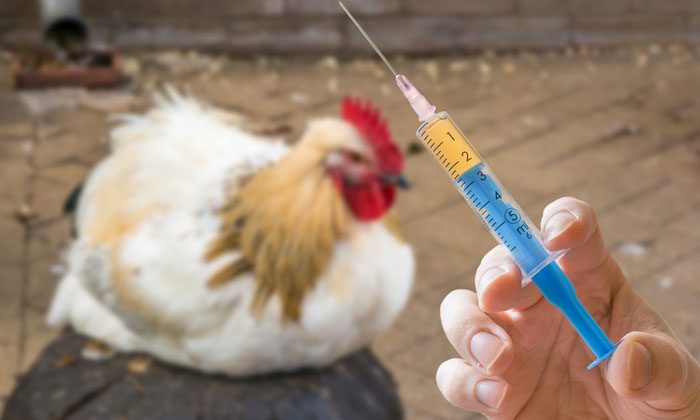

THIS MAY HURT: Antimicrobial resistance is a growing concern
Researchers are testing different methods to improve animal wellbeing in order to improve their resistance to illnesses naturally instead of depending on antibiotics to do so.
The team from the Valencian Institute of Agricultural Investigations (IVIA), Valencia’s CEU UCH and UPV universities and Barcelona’s UAB university have started a joint investigative project to design strategies to improve the wellbeing of chicken and rabbits bred for human consumption that will it possible to reduce or eliminate the use of antibiotics.
Their proposal has obtained financing by the National Institute of Agricultural and Alimentary Research and Technology (INIA), as part of the research and development programme of the national Ministry of Economy and Competitiveness as well as the National Research Agency.
Veterinary Professor at CEU UCH University Santiago Vega, a member of the research team, said: “Both on a European and national level, the reduction of elimination of antibiotics in animal production has become a key challenge.
“Our study takes a route, centred on improved wellbeing and overall health for the animals, so that they are more resistant to infections without having to be treated with antibiotics.”
The multidisciplinary project will evaluate four different strategies. These strategies are focused on better air quality, an improvement of cleaning and disinfection protocols, lower animal density in cattle farms and the use of slow growth breeds in chicken.
Santiago Vega added that animal health improvement, their immune response, the effect on their microbiota and the presence of antibiotic-resistant microorganisms will be evaluated for each of the different strategies. At the same time, the technical-economical feasibility for farms and cattle farm of each technique will also be studied.
Professor Vega said: “Although there are previous studies based on nutritional techniques as an alternative to antibiotics, the innovation of this project is that we present an alternate approach based on the animal itself.
“We proceed from the hypothesis that an animal in an optimal state of health and wellbeing should have heightened resilience, being able to face possible infections which have traditionally been fought with antimicrobials.”
The researchers and authors of the project added that an improvement of the breeding environment also has simplicity and ease of implementation by farmers on its side, as it can be done without undertaking substantial modifications of the production systems. “Although, in any case”, said Professor Vega, “it is vital to evaluate these new strategies from a global point of view, including its technical and financial feasibility, as we are doing in this project.”
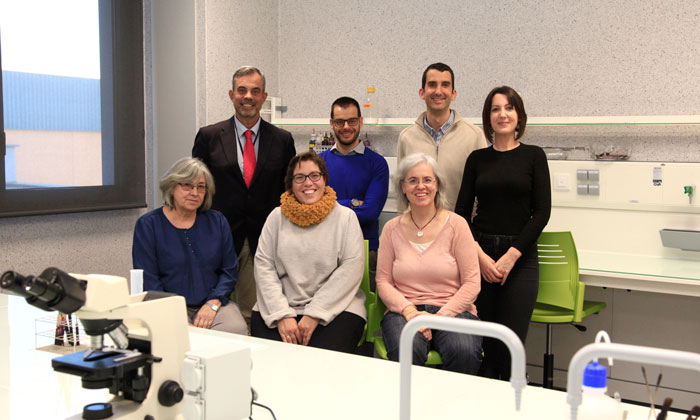

The research team
The “Valoración del manejo animal y el manejo ambiental como alternativas al uso de antibióticos en pollos y conejos de cebo. Efecto sobre las multirresistencias” (“Evaluation of animal and environmental handling as alternatives to the use of antibiotics for chickens and rabbits bred for human consumption. Their effect on multi-drug resistance”) research project has obtained financing from the INIA, the National Research Agency and the Ministry of Economy and Competitiveness of a total €115,000 for the years 2018 and 2019.
This financing is part of the National Program of Research and Development in the sector dealing with challenges for society within the field of food safety and quality, productive and sustainable agricultural activity, sustainability of natural resources and marine and maritime research.
The project will be developed by a multidisciplinary team headed by doctor Aránzazu Villagrá (IVIA), specialist in animal wellbeing; professors Santiago Vega, Clara Marín and María Teresa Pérez Gracia, specialists in microbiology and antimicrobial resistance (CEU UCH); professors Concha Cervera, Fernando Estellés y Salvador Calvet, specialists in air handling and quality and animal wellbeing and nutrition, and doctor Damián Escribano (UAB), specialist in animal stress level evaluation.
The study’s experiments will be performed mainly in the CITA-IVIA installations, and the obtained samples will be analysed in the Microbiology and Molecular Biology laboratory of the CEU UCH, as well as in the UPV and UAB’s installations.





